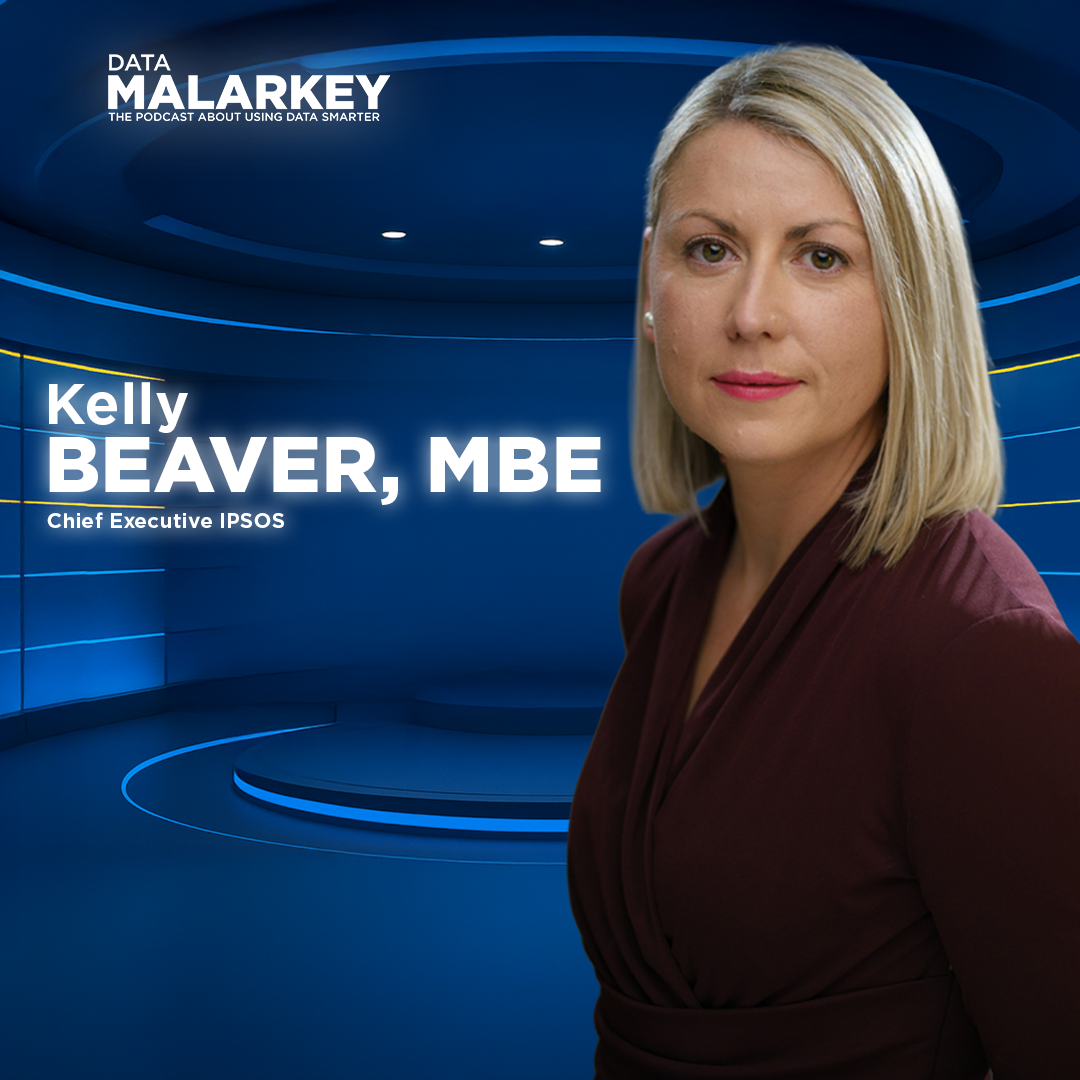In the opening episode of Season 9 of Data Malarkey – the podcast about using data, smarter –host and Master Data Storyteller, Sam Knowles, speaks with Kelly Beaver, Chief Executive for the UK & Ireland at Ipsos, the global research and public opinion specialist. This wide-ranging and thoughtful discussion centres on the Market Research Society’s “Campaign for Better Data”, of which Kelly and Ipsos are founder members.
The central message of the episode is simply this: if business, and society more broadly, want decisions grounded in reality rather than conjecture, we must take the quality of our data seriously – and we must do so now. And what we mustn’t do is hand the keys over to AI without first putting in place checks and balances.
Balancing opportunities and risks
Kelly Beaver has spent much of her career where research meets public life, leading programmes such as the REACT study tracking COVID-19 prevalence across England and investigating public attitudes towards Brexit, vaccination, and evidence in policymaking. Her vantage point gives her a clear understanding of both the opportunities and the risks that AI and automation bring to the research and analytics sector.
The MRS’ Campaign for Better Data – strongly backed by Ipsos, Kantar, and others – is a timely attempt to harness those opportunities while managing and mitigating the risks.
Ultra-Processed Data
What resonates most strongly throughout this episode is Kelly’s striking analogy: the danger of “ultra-processed data.” Like ultra-processed food, it is fast, cheap, and convenient – but stripped of its essential “nutrients”: transparency, representativeness, and a clear link to real human experience. When data is repeatedly transformed by opaque algorithms, its provenance is lost, and the decisions based on it risk becoming detached from reality.
For both Kelly and Sam, better data means a collective commitment to higher standards. That includes shared guidance and training that keep pace with technological change; an industry-wide effort to ensure quality is a baseline, not a differentiator; and visible public advocacy, such as the MRS’ Fair Data Mark, signalling ethical and transparent practice.
What clients can do to raise the bar
The promise of AI tempts buyers to demand research that is faster, better, and cheaper – all at once. Sometimes that may be achievable, but meaningful trade-offs still exist. Sam heard Kelly’s advice clearly: be an educated buyer. Ask about data sources, sampling, and how AI has been applied. Be open about priorities – speed, depth, or cost, but very definitely not all three at once – and work in partnership with agencies, especially when piloting new methods.
As AI automates more of the production and processing in research and analytics, true value shifts decisively to the interpretive “last mile”, namely the point at which evidence is translated into insight and action. For Kelly, data without context or human judgement is meaningless. The best insights emerge when teams spend time together, face-to-face, asking “So what? Now what?” and crafting narratives that decision-makers can trust and use.
Setting up Season 9 for success
This conversation successfully sets the tone for the new season of Data Malarkey: thoughtful, practical, and human. Better data is not a slogan but a professional discipline. Built on transparency and ethics, skill and dialogue, thus making insights both effective and responsible.
—
The first draft of this blog was written by ChatGPT, using a transcript of the episode and an ever-refined prompt.


